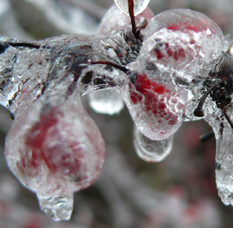Winter 2012
Table of Contents - Vol. VIII, No. 4
Poetry Translations Fiction Non-fiction Reviews
Christopher T. George
S. Thomas Summers,
Private Hercules McGraw: Poems of the American Civil War. ISBN: 978-193753614. Anaphora Literary Press, 2011, 88 pages, $15.00.
When you think about it, war is a pretty nasty thing to write about. Yet, some great poetry has been written about war and its effects on humans. Thus it is that I present to you, for your edification, the poetry of S. Thomas Summers whose great ability is in conjuring up the thoughts and feelings of Private Hercules McGraw, a Confederate soldier, and making them seem real to us, the readers, even though the battles that the young Rebel soldier experiences occurred 150 years ago. As a disclaimer, I have known Scott Summers for a number of years through various on-line poetry workshops. As a historian and poet myself, I have also actively advised Scott on marketing his book and in doing readings. Here’s a taste of the wares:
Silence Sweet as Breath
Gun smoke choked the tree limbs
like pipe smoke sifting through
a fat man’s beard. Made it hard to see.
Sitting above it, a cherub on a cloud,
I felt more like a piece of heaven than a pat
of earth. Once the muskets stopped their holler,
the air was thicker than a bowl of ma’s
bean soup. But it was thick with silence,
a silence almost as sweet as breath
so I sat in that tree for a time just soaking
all that nothing up. I filled my head
was nothing. Looking back, that was the best
time to die, but Lord had a path set for me
and I was still a few steps away from finishing my walk.
Summers conjures up the character and makes us feel as if we are walking with him, feeling his sweat, the danger of battle. Each poem
is deftly written with plain-as-the-nose-on-your-face expressions, such as “Once the muskets stopped their holler, // the air was thicker than a bowl of ma’s / bean soup.” Simple, yes, but effective and memorable.
The poet is also highly aware of the soldier’s place on the battlefield, here with Private McGraw fixing upon having an imaginary conversation with the commanding general—
Propped against that tree, a man gets to thinking—
and knowing I’d be within a sneeze of Gen. Lee
in a day or two, I started planning what I’d say.
Gen. Lee, sir, I’d say, since you’re down
talking to all us unimportant folk, I was hoping
you could consider my mind a bit.
I know you’re a smarter man than me—
if I had stronger brains I’m sure I’d be wearing fine,
shiny shoes instead of just this here sorry pair,
but me and Willie been thinking. We been marching
here and there a good spell not knowing where we off to
any more than my ass knows where my feet are headed.
Kind of like we just some big gray cloud
floating here and there as the wind sees fit to push us.
Kind of like those old Jews after they bucked out
of Egypt—just started roaming the wilderness.
Now, don’t take this sour, sir. I’m sure you thank
the Almighty before supper, but you ain’t Moses—
so I’m wanting to know what you got in store for us.
My ear is yours, sir. . . bend it. Yup, that’s what I’d say.
Hercules McGraw is an avowed racist. He enlists in order to buy a slave “to master” so he can impress a sweetheart, as he states in a letter to his mother (“A Note Nailed to the Door”).
Hercules McGraw begins the war as an avowed racist but as the war
continues he modifies his views. He begins to sympathize with the
slaves’ predicament, as in “Breathe and Smile” which expresses these
thoughts: “Guess it’s just / what all those slaves wanted too— / just a
place to breathe and smile.
Scott Owens,
For One Who Knows How to Own Land. FutureCycle Press, 2012, 98 pages, $15.95.
The poems in this collection are as homespun as the title poem. Scott Owens, who has spent his life in the Carolinas, is the editor of Wild Goose Poetry Review. He teaches at Catawba Valley Community College and lives in Hickory, NC.
Here is a typical poem from the collection:
From that hill I could see
the asphalt plant choking the sky,
the girl scout camp beneath the pines
that echoed with laughter on summer nights,
seven acres of red cows and corn,
the highway’s red clay bank
leading the way to anywhere else.
Only in back the trees rose up,
a pine wall too thick to see
through, too tall to see over
but quarry sounds kept imagination’s
beasts alive and creeping closer.
Why should this be home,
a place I lived only between
other homes, once a year,
a month at a time at least till 12,
a place where evening sang with voices
of the old, the unambitious,
the not-too-distant wild,
a place where dying has its own season,
and everything smelled like dirt.
A place is just a place,
one as good or bad as the other.
It’s the people you care for,
or hate, who keep you
coming back, or never let go.
This is simple stuff but sophisticated at the same time, thoughtful
and elegiac about the rural life that the poet knows so well. A highly
recommended book and certainly one that I will read time and again.
© Christopher T. George


